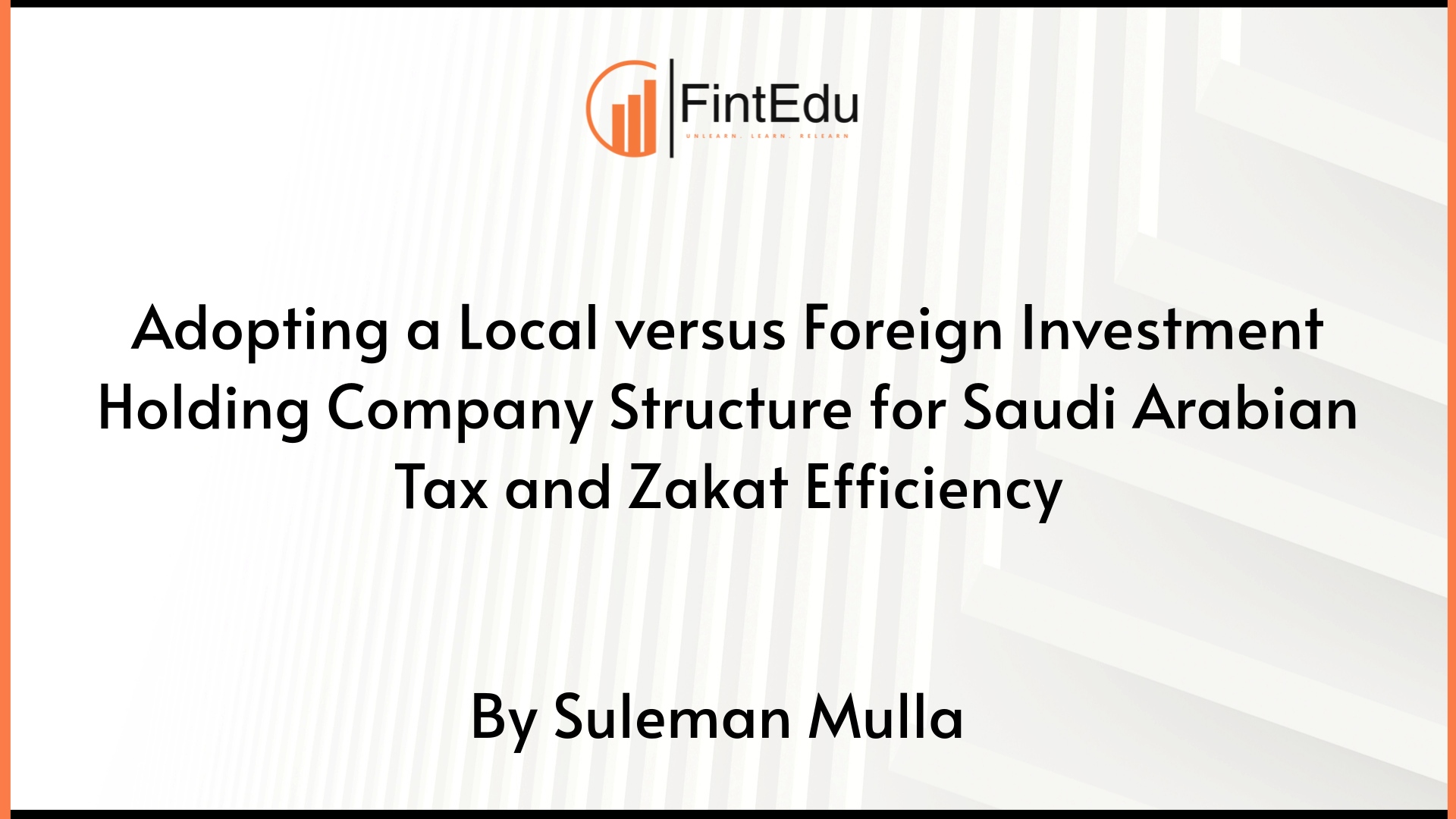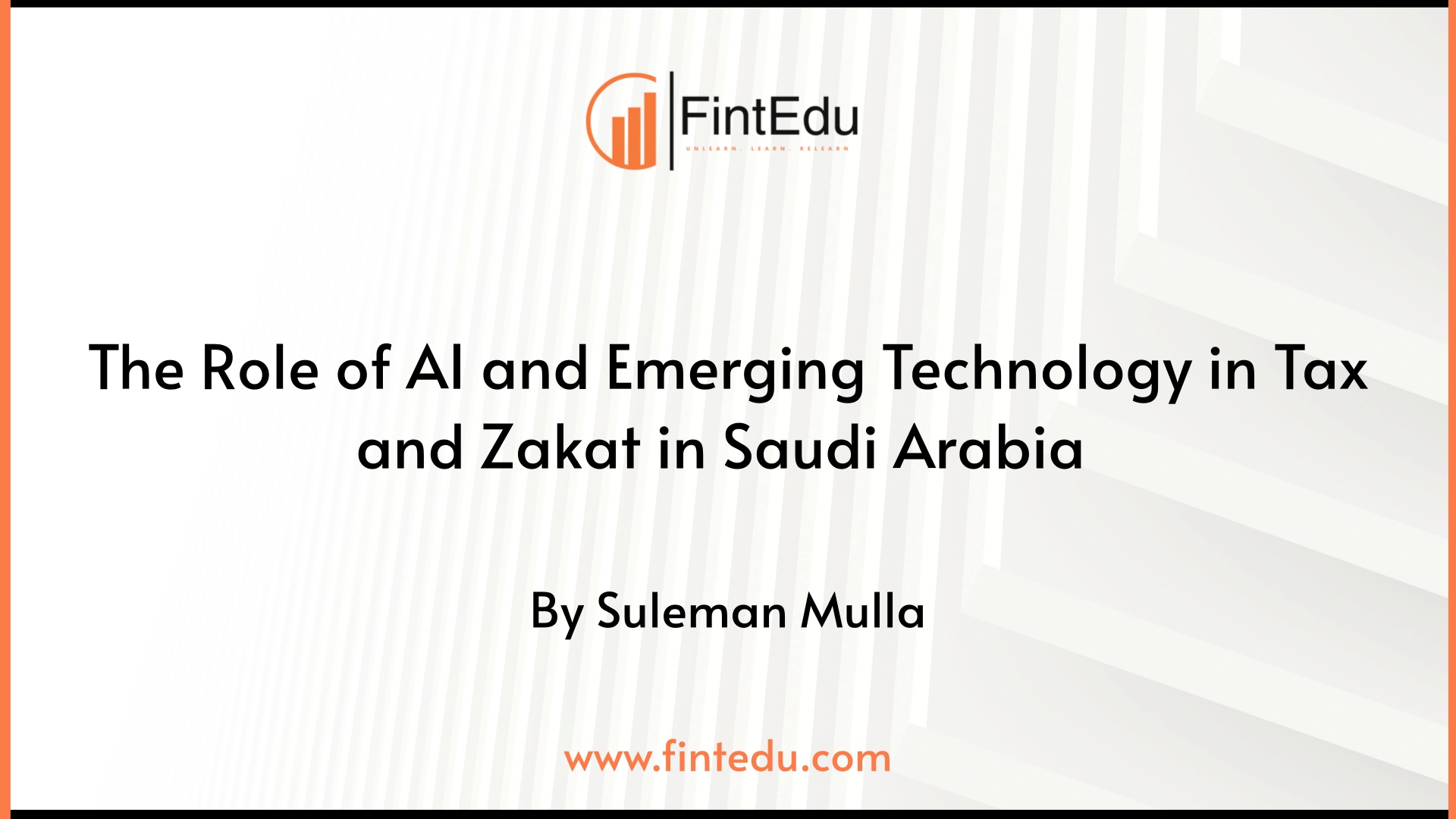LISTEN TO THIS ARTICLE
The rapid adoption of emerging technologies such as Artificial Intelligence (AI), blockchain, and big data is transforming the tax and zakat ecosystem in Saudi Arabia. As the Kingdom accelerates its digital transformation under Vision 2030, the Zakat, Tax, and Customs Authority (ZATCA) has, and is considering embracing new technologies to enhance compliance, streamline tax administration, and improve taxpayer experience. Over the past few years ZATCA has already embraced significant technological and digital processes through the E-Services Portal, Customer Voice Platform, Smart Contract Platform and ZAKATY website, amongst others.
This article explores how AI and emerging technologies are, and will continue to shape the future of taxation and zakat in KSA.
1. AI in Tax and Zakat Administration
AI enables tax authorities to manage complex datasets, automate processes, and generate insights for decision-making. ZATCA has advanced its process of implementing AI-powered tools in the following areas:
a) Smart Tax Compliance and Audits
AI algorithms analyze large volumes of transactional and financial data to detect anomalies and potential fraud. By flagging suspicious activities, AI reduces human error and streamlines the auditing process, ensuring better compliance monitoring.
b) Predictive Analytics for Revenue Forecasting
AI models predict tax and zakat revenues by analyzing historical data, macroeconomic indicators, and behavioral trends. These forecasts help ZATCA enhance budget planning and align policies with future economic developments.
c) Automated Chatbots for Taxpayer Assistance
AI-driven chatbots offer round-the-clock support to businesses and individuals, answering queries on tax returns, zakat obligations, and penalties. This addition would improve the taxpayer experience by reducing wait times and providing quick responses.
2. Blockchain for Transparency and Compliance
Blockchain offers a tamper-proof ledger system, ensuring secure and transparent transactions. In tax and zakat collection, it can track transactions from initiation to completion, minimizing fraud and human intervention.
a) VAT and Invoice Management
ZATCA’s e-invoicing initiative (Fatoorah), which mandates digital invoicing, is further enhanced by blockchain. This ensures that every invoice is traceable, preventing fraudulent VAT claims and ensuring compliance with real-time reporting.
b) Cross-border Taxation and Customs
Blockchain technology can streamline cross-border transactions, improving transparency in customs clearance and tax reporting. This will enhance compliance with international tax standards and agreements, ensuring smooth trade operations.
3. Big Data for Enhanced Decision-Making
Big data enables ZATCA to analyze vast amounts of taxpayer information and identify compliance patterns and trends. It would help the government optimize policy decisions, monitor sector-specific contributions, and conduct more targeted audits.
4. Robotic Process Automation (RPA) for Operational Efficiency
RPA automates routine tasks such as data entry, form validation, and invoice reconciliation, minimizing human involvement. In ZATCA’s operations, RPA would be instrumental in:
- Processing tax/zakat returns more quickly.
- Validating e-invoices in real-time.
- Reducing operational costs by limiting manual interventions.
5. The Future of AI and Emerging Technologies in Saudi Arabia’s Tax System
As technologies like machine learning and natural language processing (NLP) mature, KSA’s tax system will become more proactive and personalized. Future developments may include:
- Personalized tax/zakat recommendations for businesses.
- AI-based fraud detection across international financial networks.
- Real-time zakat calculations integrated with business management software.
Moreover, ZATCA’s collaboration with global organizations such as the OECD ensures that KSA remains aligned with global best practices in tax digitalization and transparency initiatives, including BEPS 2.0 reforms.
Challenges and Considerations
While the integration of AI and emerging technologies offers many benefits, there are challenges to address:
- Data privacy and security: Ensuring compliance with KSA data protection regulations.
- Adoption by SMEs: Educating smaller businesses on using digital tools for tax and zakat compliance.
- Regulatory alignment: Ensuring new technologies comply with global tax frameworks and Islamic principles guiding zakat collection.
Conclusion
AI and emerging technologies are revolutionizing the way ZATCA administers tax and zakat collection in Saudi Arabia. By adopting these innovations, KSA is improving efficiency, transparency, and compliance, making its tax and zakat system more robust. As Vision 2030 drives further digital transformation, businesses and individuals must adapt to these technological shifts to remain compliant and leverage the benefits of a modernized tax environment.
Disclaimer: Content posted is for informational and knowledge sharing purposes only, and is not intended to be a substitute for professional advice related to tax, finance or accounting. The view/interpretation of the publisher is based on the available Law, guidelines and information. Each reader should take due professional care before you act after reading the contents of that article/post. No warranty whatsoever is made that any of the articles are accurate and is not intended to provide, and should not be relied on for tax or accounting advice
Contributor
Related Posts

@@PLUGINFILE@@/Reconsidering%20the%20Use%20of%20Big%204%20Firms%20in%20Saudi%20Arabia%20%20A%2...
Read More
@@PLUGINFILE@@/The%20King%20Abdullah%20Financial%20District%20%28KAFD%29%20in%20Riyadh%20Posit...
Read More
@@PLUGINFILE@@/Adopting%20a%20Local%20versus%20Foreign%20Investment%20Holding%20Company%20Stru...
Read More